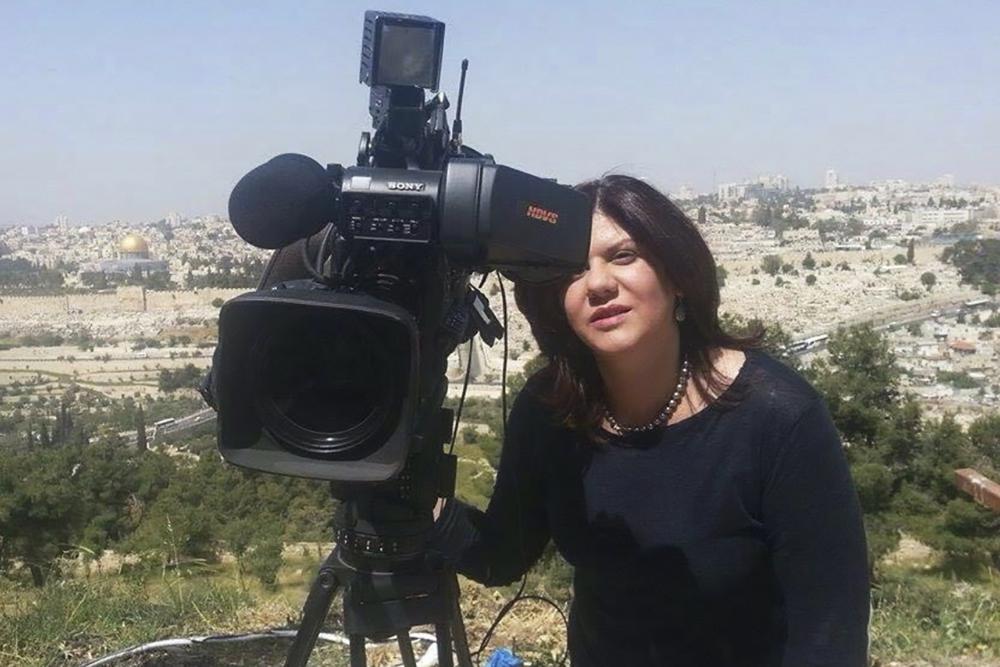

An Al Jazeera correspondent who was shot dead on Wednesday during an Israeli raid in the West Bank was a highly respected journalist in the Middle East whose unflinching coverage was known to millions of viewers.
News of Shireen Abu Akleh’s death reverberated across the region. The 51-year-old journalist became a household name synonymous with Al Jazeera’s coverage of life under occupation during her more than two decades reporting in the Palestinian territories, including during the second intifada, or uprising, that killed thousands on both sides, most of them Palestinians.
Abu Akleh’s name trended across Twitter in Arabic on Wednesday, setting social media alight with support for the Palestinians. Her image was projected over the main square in the West Bank city of Ramallah as mourners flooded the Al Jazeera offices there and her family home in east Jerusalem.
Al Jazeera and witnesses, including her producer who was shot in the back Wednesday, said she was killed by Israeli gunfire. Israel said it was unclear who was responsible, calling it “premature and irresponsible to cast blame at this stage.” Later Wednesday, Israeli Defense Minister, Benny Gantz promised a transparent investigation and said he was in touch with U.S. and Palestinian officials.
Abu Akleh’s coverage of the harsh realities of Israel’s military occupation was inextricably linked with her own experiences as a Palestinian journalist on the front lines. Her death underscores the heavy price the conflict continues to exact on Palestinians, regardless of their role as journalists.
Although she was also a U.S. citizen who often visited America in the summers, she lived and worked in east Jerusalem and the West Bank, where those who knew her said she felt most at home. A Palestinian Christian whose family was originally from Bethlehem, she was born and raised in Jerusalem. She leaves behind a brother and her parents.
In an Al Jazeera video released last year, Abu Akleh recalled the scale of destruction and “the feeling that death was at times just around the corner” during her coverage of the second intifada, from 2000-to 2005. “Despite the dangers, we were determined to do the job,” she said.
“I chose journalism so I could be close to the people,” she added. “It might not be easy to change the reality, but at least I was able to communicate their voice to the world.”